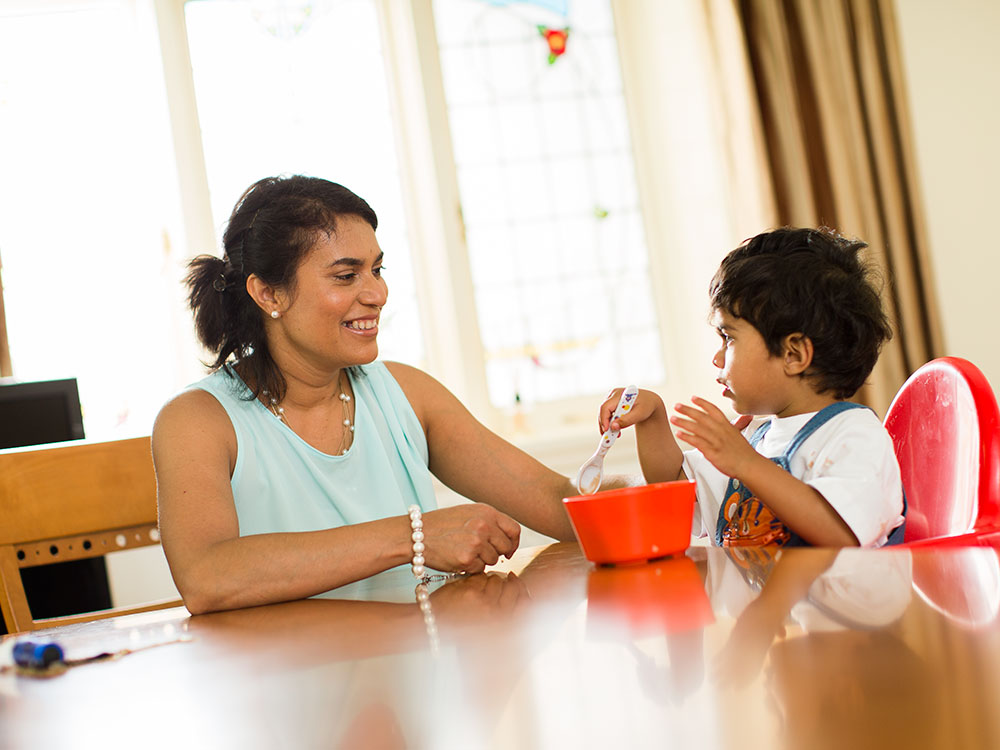Three Steps to Soothe Your Childs Health-Related Fears
To soothe your child’s health-related fears, start by understanding what’s bothering them. Talk openly about their worries and let them know you’re there for them no matter what. Reassure them with love and support, showing them they are not alone. Teach them in a gentle and caring way about their health in words they can understand. Practice relaxation techniques together to help them feel calm. Remember, these steps are just the beginning to help your child feel better and more secure.
Key Takeaways
- Offer reassurance and support to address fears.
- Communicate openly and listen actively to understand their concerns.
- Seek guidance from medical professionals or therapists.
- Create a safe and comforting environment for the child.
- Teach coping skills and relaxation techniques for managing anxiety.
Understand the Root Cause

To help your child overcome health-related fears, it’s important to first understand the root cause behind their anxieties. Identifying triggers is essential in addressing their concerns effectively. Pay attention to any specific situations, experiences, or information that seem to provoke fear or stress in your child. These triggers might include visits to the doctor, certain symptoms, or even conversations about illnesses.
By pinpointing what exactly is causing your child’s fear, you can tailor your approach to help them manage their emotions.
Addressing concerns directly is vital in helping your child navigate their fears. Once you’ve identified the triggers, sit down with your child and have an open conversation about their worries. Encourage them to express how they feel and listen attentively without judgment. Reassure them that it’s okay to feel scared and that you’re there to support them.
Encourage Open Communication

When your child expresses their fears, make sure to listen attentively and show understanding.
Reassure them that it’s okay to share their feelings and thoughts with you.
Encouraging open communication will help build trust and create a safe space for them to express themselves.
Listen Actively
Engage with your child by actively listening to their health-related fears, creating a safe space for open communication. Parental involvement is essential in addressing your child’s concerns effectively. Let them know that you’re there to listen and support them through their worries about their health.
When your child expresses their fears, practice therapeutic listening by giving them your full attention without interrupting. This shows them that their feelings are valid and important to you.
As you listen, pay attention to both their words and their body language. Sometimes children may not fully articulate their fears verbally, but their body language can provide valuable cues about their emotions. Encourage them to express themselves openly by asking gentle questions and showing empathy towards their concerns.
Reassure them that it’s okay to feel scared or worried and that you’re there to help them navigate through their fears. By actively listening to your child, you can strengthen your bond and create a supportive environment where they feel safe to share their health-related fears.
Offer Reassurance
Offer your child reassurance by encouraging open communication about their health-related fears. Parental presence plays a vital role in helping your child feel safe and supported during times of uncertainty. Create a safe space for your child to express their concerns openly without fear of judgment. Listen attentively to their worries and validate their feelings to show that you understand and care about what they’re going through.
Comforting gestures such as gentle hugs, holding their hand, or simply sitting quietly beside them can provide a sense of security and comfort. Reassure your child that you’re there for them every step of the way and that you’ll work together to address their fears and find solutions.
Encourage them to ask questions and share their thoughts openly, fostering a sense of trust and openness in your relationship.
Provide Reassurance and Support

When your child is scared or worried about their health, offering constant comfort is key. Remember to stay calm and patient, showing them that you’re there to support them through it all.
Your reassurance can make a world of difference in helping them feel safe and secure during challenging times.
Offer Constant Comfort
As your child navigates through health-related fears, remember to consistently provide them with reassurance and unwavering support. Your comforting presence can make a world of difference during this challenging time. Be there for them, listen to their concerns, and offer constant comfort. Let them know that you’re by their side, no matter what.
Consistent reassurance is key to helping your child feel safe and secure. Remind them that it’s okay to feel scared and that you’re there to help them through it. Encourage open communication so they feel comfortable expressing their worries. Reassure them that their feelings are valid and that you’re here to support them every step of the way.
Stay Calm and Patient
During moments of uncertainty, remember to maintain a calm and patient demeanor as you provide reassurance and support to your child. When your child is facing health-related fears, your composed presence can be a source of comfort and stability for them.
Deep breathing can help you regulate your emotions, allowing you to respond to your child’s concerns with a clear mind and a steady voice. Practice mindful parenting by actively listening to your child, acknowledging their feelings, and offering empathy.
Your child may look to you for cues on how to react in stressful situations, so modeling a calm attitude can help them feel more secure. By staying patient and composed, you demonstrate to your child that you’re there to support them through their fears.
Remember to reassure your child that you’re there for them, and that you’ll help them navigate any challenges they may face. Your presence and support are invaluable in helping your child feel safe and understood during times of uncertainty.
Educate in a Child-Friendly Manner
To help your child feel more comfortable and less scared about their health concerns, it’s important to explain things to them in a way that’s easy for them to understand and doesn’t overwhelm them. Engage playfully and involve them creatively in the learning process. Use simple language and relate health concepts to things they already know.
For example, you could compare white blood cells to superheroes that fight off germs in their body.
When discussing medical procedures or conditions, use visual aids like drawings or toys to demonstrate what’ll happen. This hands-on approach can make complex ideas more tangible and less intimidating for your child. Encourage them to ask questions and express their feelings openly.
Acknowledge their concerns and provide reassurance by emphasizing that you’re there to support them every step of the way.
Practice Relaxation Techniques Together

Let’s explore simple relaxation techniques that you and your child can practice together to help alleviate any worries or fears they may have related to their health.
One effective method is practicing visualization. Encourage your child to close their eyes and imagine a peaceful place, like a sunny beach or a cozy forest. Guide them to picture the details – the sounds of the waves or the rustling leaves – to create a calming mental escape from anxiety.
Another valuable technique is deep breathing. Teach your child to take slow, deep breaths, filling their belly with air and then slowly exhaling. You can make it fun by pretending to blow up a balloon with each inhale and then deflate it with each exhale. Deep breathing can help relax their body and mind in stressful moments.
Seek Professional Help if Needed
If your child’s health-related fears persist despite practicing relaxation techniques together, it may be beneficial to seek professional help to address their concerns effectively.
Therapy options are available to assist children in managing their anxieties and fears in a safe and supportive environment. Child psychologists or therapists specialize in helping children navigate through difficult emotions and develop coping strategies. These professionals can work with your child to understand the root cause of their fears and provide tailored interventions to alleviate them.
In addition to therapy options, consulting medical professionals such as pediatricians or child psychiatrists can also be helpful. These experts can assess your child’s physical and mental health to determine if there are any underlying issues contributing to their fears. They can provide guidance on appropriate treatments or interventions to support your child’s well-being.
Frequently Asked Questions
Can I Use These Steps for Adults With Health-Related Fears?
Yes, you can apply similar coping strategies to address adult fears related to health. Just like parental support helps children, having a supportive network can also comfort adults facing health-related fears. Remember, support is key.
What if My Child’s Fears Worsen Despite Following These Steps?
If your child’s fears worsen despite the steps, seek professional help to manage anxiety. Provide parental support and teach coping strategies. Remember, it’s okay to ask for assistance and make sure your child feels safe and understood.
How Do I Address Health-Related Fears in a Non-Verbal Child?
To support a non-verbal child with health-related fears, try using visual aids and sensory tools. Engage in play therapy and relaxation techniques like deep breathing or gentle massages. Always focus on creating a safe and comforting environment.
Are These Steps Effective for Children With Medical Conditions?
For children with medical conditions, the steps can be effective in anxiety management. Understanding child psychology is key. These techniques are tailored to pediatric patients, aiming to create a safe environment and alleviate fears associated with their health.
Can These Steps Be Adapted for Teenagers With Health-Related Fears?
When teenagers face health-related fears, adapting coping strategies is essential. Consider their anxiety levels, explore support systems like therapy or peer groups. Prioritize adolescent mental health by tailoring interventions to their unique needs and concerns.
Conclusion
Remember, your child’s health-related fears are valid and it’s important to address them with understanding and support. By taking the time to listen, communicate openly, and provide reassurance, you can help ease their worries and build their confidence.
Educate them in a way that’s easy for them to understand and practice relaxation techniques together to promote a sense of calm.
Remember, you aren’t alone in this journey, and seeking professional help is always an option if needed.

Chad Adan Kace, a young dad from Vermont, shares his parenting journey with a touch of humor and lots of love. Father to a lively baby, he explores the joys and challenges of fatherhood through his stories.







